Visitors were 43 days away from Hawaii’s latest Green Fee, a new 14% cruise surcharge, when the federal government just jumped in and said the fee violates federal law. The move threw Hawaii’s Green Fee into uncertainty just weeks before it was scheduled to start on January 1.
What the Department of Justice filed was not a routine procedural note. Instead, it was a full motion to intervene along with a detailed legal complaint that described the fee as a scheme to extort American citizens and businesses. Those are the words of the federal government, not BOH, and they appear directly in the documents submitted to the court (attached below).
The filing surprised many visitors who had contacted us in recent weeks, asking whether cruise prices were about to jump yet again. Now the entire program is under legal challenge before a single dollar has been collected.
What the fee would have meant for Hawaii travelers.
Act 96 created what Hawaii called a climate impact fee to be applied to cruise passengers. It was structured around how long a vessel remained docked in one of Hawaii’s ports. The state portion came in at an 11% surcharge on the prorated cost of the Hawaii segment of the cruise. Counties were permitted to add another 3%. That brought the total to about 14%.
Early state estimates projected about $100 million per year, all funded by visitor cruise fares rather than state tax revenue. Visitors would not have received anything in exchange for the fee. The money was intended to support statewide climate resilience and environmental programs rather than port infrastructure or any passenger amenities.
Some travelers who reached out to us questioned whether a charge tied to vacation time in port should cover costs that extend far beyond cruise operations. Others wanted to know whether itineraries would be altered to minimize the time ships spend in Hawaii ports. Cruise lines had not yet adjusted schedules, but behind the scenes, some operators have been preparing to factor the fee into future pricing and plans. That planning has now been disrupted.
One important clarification. This federal case is focused on how Act 96 applies to cruise ship operators and passengers while ships are in Hawaii ports. The separate 0.75% Green Fee increase on hotel, vacation rental, and other overnight stays, which takes effect January 1, 2026, is part of the statewide Transient Accommodations Tax and is not what the Department of Justice is challenging here. For now, the accommodations Green Fee continues on schedule, while the cruise-related provisions face this new legal test.
Why the federal government stepped in.
In its filings, the Department of Justice said the Green Fee violates two separate federal laws that govern vessels in United States waters. The first is the Tonnage Clause of the Constitution, which prohibits states from imposing charges on vessels for entering or staying in a port unless specifically allowed by Congress. The second is the Rivers and Harbors Appropriations Act of 1884, which bars states and counties from levying taxes, tolls, operating charges, or similar charges on vessels or passengers on navigable waters.
According to the federal complaint, Act 96 triggers both of these problems. The fee is based solely on the number of days a ship is docked in Hawaii, and the funds collected are used for purposes unrelated to port services or maritime operations. The Department of Justice described the fee as an impermissible charge for the privilege of having a vessel in a port and argued that it cannot stand under federal law.
The government also noted its responsibility to maintain uniform rules for maritime commerce nationwide. The language in the filing is unusually strong and direct. The use of the phrase “scheme to extort American citizens and businesses” underscores the seriousness of the federal objection without requiring interpretation.
What Hawaii says in response.
A spokesperson for Hawaii Attorney General Anne Lopez said the state is vigorously defending the legality of Act 96. That has been the consistent message since the lawsuit began. Hawaii maintains that the fee is tied to its need to address negative environmental impacts associated with tourism and that states should have the ability to raise revenue for these purposes.
The state has not yet issued a detailed public response to the federal government’s motion. The next step is for the judge to decide whether the United States may intervene. If granted, the federal complaint becomes part of the case, and the court will then determine whether to block the fee before January 1. Hawaii travelers are waiting for that decision because the court has limited time to act before the implementation date.
What the cruise industry has not said yet.
Norwegian Cruise Line, Princess Cruises, and Carnival Cruise Line have all declined to comment while the matter is pending. That silence comes while operators face significant uncertainty. If the fee is ultimately blocked, pricing will remain unchanged. If it is upheld, operators must incorporate a complex, prorated surcharge for every Hawaii itinerary.
Cruise planners have told us privately that no company wants to adjust fares, schedules, or marketing until the court provides clarity. This lack of public comment shows how much is at stake in the upcoming ruling and how difficult it is for the industry to prepare without knowing whether the fee will ever take effect.
How visitors reacted before the federal filing.
We had already heard significant visitor concern long before the federal government acted, and not just about cruise fees. When we first wrote about the broader Green Fee program earlier this year, the response revealed deep frustration over how Hawaii continues to add visitor-related charges.
One reader, Carl B, said visitors are now perceived as “cash cows,” and that their annual Hawaii trips have already been replaced by destinations with “much lower taxes.” Others echoed similar concerns even before the cruise surcharge appeared.
Several readers shared that they were shocked to learn that a new 14% surcharge was being considered at a time when overall Hawaii travel costs feel higher than ever, and major industry providers are concerned about weakness in Hawaii travel.
One reader who booked a family cruise for spring asked us whether this meant she should expect several hundred dollars in additional charges. Another said he felt cruises to Hawaii were becoming less competitive than cruises to Mexico or Alaska, and wondered how this fee would affect future bookings.
These reactions were echoed by travel agents who said that even the possibility of the fee created hesitation among clients considering Hawaii itineraries. Visitors also asked whether airlines could see a push for similar charges in the future. At this point, there is no indication of that, but the questions highlight how sensitive this issue has become for Hawaii travelers whenever a new fee is proposed.
What comes next in court.
Judge Jill Otake will decide whether to allow the United States to intervene. That decision will determine the path of the case. If the intervention is approved, the court will then consider the federal government’s request to block enforcement of Act 96 while the lawsuit continues. If the court grants that request, the January 1 start date is paused. If not, the fee could take effect even as litigation proceeds. That course is not yet clear.
The court has also not provided a public timeline, but motions of this type and sensitivity are generally handled on an accelerated basis as deadlines approach. Visitors with Hawaii cruises in early 2026 should expect clarity soon. However, the impact will reach beyond just those early passengers and into how future Hawaii cruise itineraries are planned and priced.
Why the federal challenge matters to visitors.
What stands out most in this case is that visitors would have funded the entire program. The state projected $100 million in new revenue annually, all collected from cruise passengers. That would have made this Green Fee one of Hawaii’s most significant visitor-funded initiatives. Whether the program can legally stand is now for the court to decide.
The dispute centers on whether states can impose charges on vessels and passengers in a manner that federal law has long prohibited. Visitors want to understand the fairness of any new fee and how it relates to their overall trip costs. That is why this case matters so much and why we will continue following it closely.
What do you think is the fairest approach for Hawaii when it comes to visitor-related fees, especially when those fees could influence whether travelers choose Hawaii cruises at all?
CruiseDOJGet Breaking Hawaii Travel News
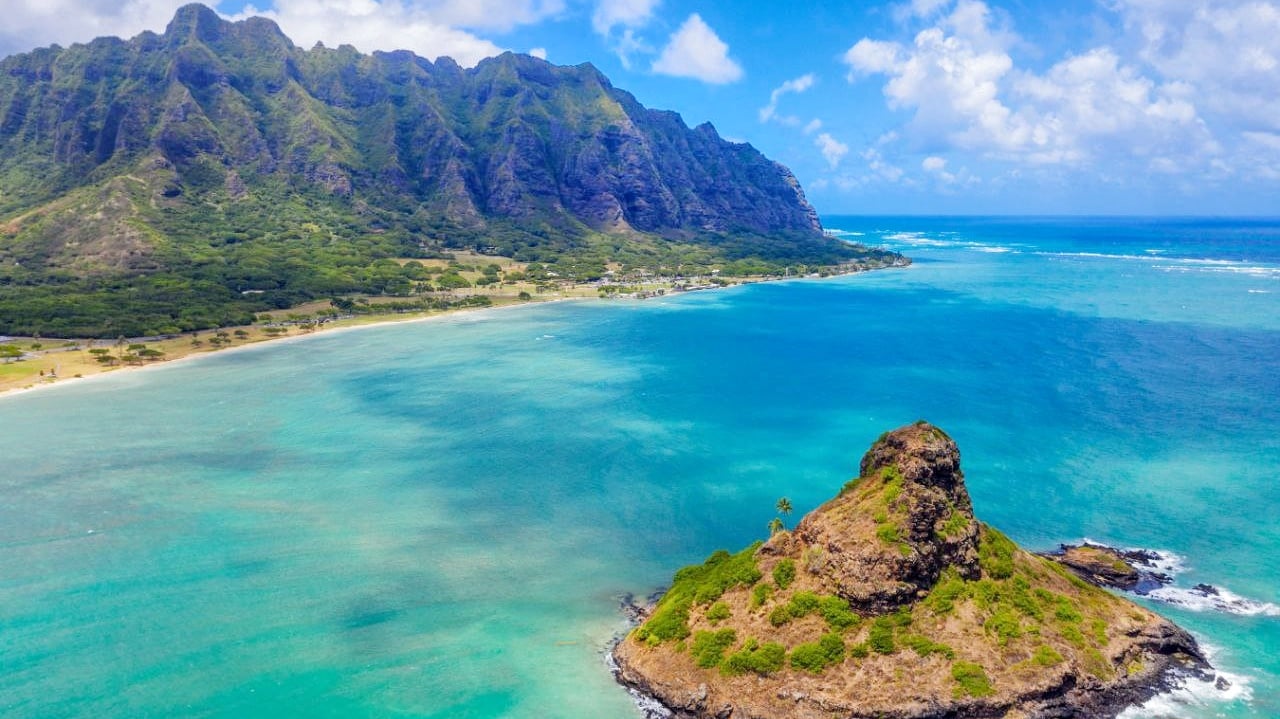


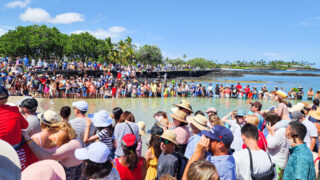
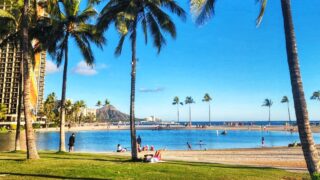
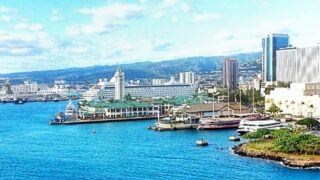
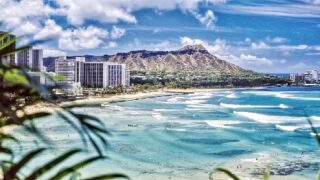
We have to pay for the privilege of visiting Hawai’i? This is upside down. Tourists should charge Hawai’i for the privilege of having them visit and spending their money, supporting the state. The taxes are whack. When i lived there there was none of this nonsense. Resort fees, ridiculous parking fees, park fees, on and on. Seems the tourists are burdening the state by their presence. HA!
No wonder some complain about the vibe, Aloha, feeling less. Every state has visitors that are ‘burdening’ their resources. Just stop.
The best part is this will have an impact on the Jones Act. One cannot have the other. So, either Hawaii bends or the Fed bends – or both. This isn’t quantum.
If Hawai’i itself was smart, they’d challenge it even if a few dock workers and the union is upset, since effectively it’s double taxation.
And, until Hawaiian leadership takes a business course and diversifies revenue, we’ll be beholden to tourism. So there’s that…
Captain Obvious will be taking appointments next week. 🙂
The federal government should force Maui to repay the $5,600,000,000 fire welfare. Shame on the greedy hypocrites.
Just Hawaii being Hawaii… You’d think the residents would actually give a __ their taxes literally go towards nothing being improved. Has anyone actually looked around parks (sports complexes, beach parks etc). Dirty, dusty, bathrooms in disarray. Roads are awful, train to nowhere that will never recoup its costs. Lackluster marinas. Especially on the outer islands.
Moved my kids to Florida and the difference in facilities is astounding. Not to mention public school facilities, parks beach parks, public restrooms rooms. And we pay less taxes. Where does that tax money in Hawaii go?!!!!!
When you’re trained to say “lucky we live Hawaii” I guess that causes a ton of apathy.
Google “hawaii commuter rail fiasco” and see how Hawaii spends money wisely, um… er….. Not ! Green Fees will be wasted.
All the states have their commuter train money pits, that go directly into the elected officials pockets. I am surprised that the Natives don’t know about that, and get rid of those officials.
Thank you US Government for moving forward to protect us and our visitors from (alleged) extortion.
😊 Sharon
🌺 🌺 🌺
I was right on a prior comment, the Feds need to look at all these extra fees for non-residents like parking and park passes! Not right or fair!
Everyone keeps talking about tourists paying their fair share, but nobody wants to talk about how much they are already paying. Hotel tax, rental car tax, resort fees, parking, now Green Fees on top of it. At some point you are not asking for a fair share, you are just seeing how far you can push before people just go somewhere else. We are getting close to that point for our family and it is just plain offensive.
If Hawaii wants people to accept something called a Green Fee, then the first thing I would expect to see is green fee related results. Cleaner beaches. Open and functioning restrooms. Trails that are not falling apart. Clear reports on what was spent where. Without that, this just looks like one more way to squeeze visitors who are already paying some of the highest prices in the country.
“I would expect to see is green fee related results. Cleaner beaches. Open and functioning restrooms. Trails that are not falling apart. Clear reports on what was spent where.”
Dream on! That comment is dead-on but of all the things that will never happen, that is the one thing that will not happen the most.
We did a back to back Hawaii cruise a few years ago and loved it, but we are already noticing the costs. Port taxes, fuel surcharges, higher gratuities, higher airfare. Add 14% here and Hawaii goes from being our first choice to our last. The part that bothers me most is the uncertainty. You plan a trip a year in advance and then find out at the last minute a whole new fee got bolted on to your bill.
Will this tax apply when the cruise ship is holding position off Kona? It isn’t docked when it is.
If that is the loophole, can the ships just stay out of harbor and run passengers in at all ports?
I wish they’d do the same for time share owners. My bill arrived in my inbox just today. I owe $116.50 a week for my units in property tax. If I’m paying the property tax directly, and I hold a deed to the unit, I should not be subject to a short term occupancy tax.
100% agree with you Matthew!
This last trip I took in August-September really hit me hard on how high the fees are in Maui on top of paying property taxes as a time share owner. I left feeling cheated and questioned coming back to the Island again.
Finally someone calling this nonsense for what it actually is, namely Extortion! Guessing that Greenie and the others in the legislature have not caught on to the fact that some of the more outspoken global warming whackadoodles have started backing away from their former positions because there is even less proof for what they were lecturing everyone about was ever even a thing!
These ridiculous taxes just are just trying to be used that STILL believe that you can tax a state into prosperity when that has Never happened!
Extortion is the right phrase to use for the way Hawaii government taxes not just tourists but residents. $100 dinner now cost around $130 when you add in tax, credit card fees and extortionary tips terrible service. In 30 years I’ve never seen anything get better and Honolulu it just gets worse and more expensive. I’m looking to leave and take my money somewhere where it’s respected. Goodbye green fees goodbye all of these taxes.
The government here is as corrupt as can be. There is no accounting for or all these tax dollars go and who gets them. It’s absolutely criminal.
What jumps out at me is that this was going to be 100% paid by visitors and 0% tied to actual services. No extra security, no upgraded restrooms at the pier, no shuttles, nothing. Just a straight skim off the top of the cruise fare for projects all over the state. Call it what you want, but I can see why the federal government looked at that and said no.
As a Hawaii resident I am torn. Cruise ships absolutely bring wear and tear and they profit from using our ports. At the same time, residents are getting hit with higher fees too and we see very little transparency about where the money goes. If this fee really is illegal the way the feds are now saying, our leaders need to go back and design something that is both constitutional, transparent and honest about how the funds will be spent.
I understand the idea of a Green Fee and I do not think cruise passengers should get a free pass on their impact. What bothers me is the lack of trust. We have been visiting Hawaii since the 90s and I honestly cannot point to where all the previous fees have clearly improved beaches, restrooms, or trails. Before adding a 14% charge, the state should have to show a visible track record of using what it already collects.
What % of Hawaii pollution comes from cruise ships? Vs % from vehicles, heating, etc from residents? Tax each car $40 green fee and see response.
That’s a nice cruise ship you got there. Be a shame if something should happen to it …
Compromise, cut the fee in half 6% 5%, , that’s enough to satisfy all parties.
Hawaii has, like many other states and cities, waged war on those whose dollars they rely upon. “Don’t bite the hand that feeds you” is appropriate, not that it will help. As with other cities, they “need more money” to overcome their incompetent shepherding of funds they’ve already received is their mantra. I’d wager that a 100% boycott of the islands for a period of 1/2 of what Maui experienced after the fires would still not be enough to change the locals’ minds regarding voting in incompetent, union lackey politicians. Good luck. Just like progressive led teacher’s unions have destroyed (based on all available data) the public education system, so too shall Hawaii’s fate be determined.
Hawaii is taxing prospective visitors to death with no visible improvements to infastructure or anything else that I can see here on Maui. In 2021 a new 3% tax was imposed with the excuse it was needed for infrastucture, cultural site upgrades etc. Now Another .75% fee is upcoming Jan 1st. Where are all these $ going? Is it in place to discourage visitors? if so it has succeeded… Sunshine Laws allow for transparency. I’d like to see where this $ has gone…
Aloha! There is one missing element to this ongoing taxation. Each one seems to end up in a general account. Has anyone ever put all of these fees in one place to track how much is taken in, and where it’s being spent? I read about all the fees, and increasingly how things are deteriorating and not being repaired. Something is not right, and the citizens deserve answers. The facilities are theirs and they should demand it.